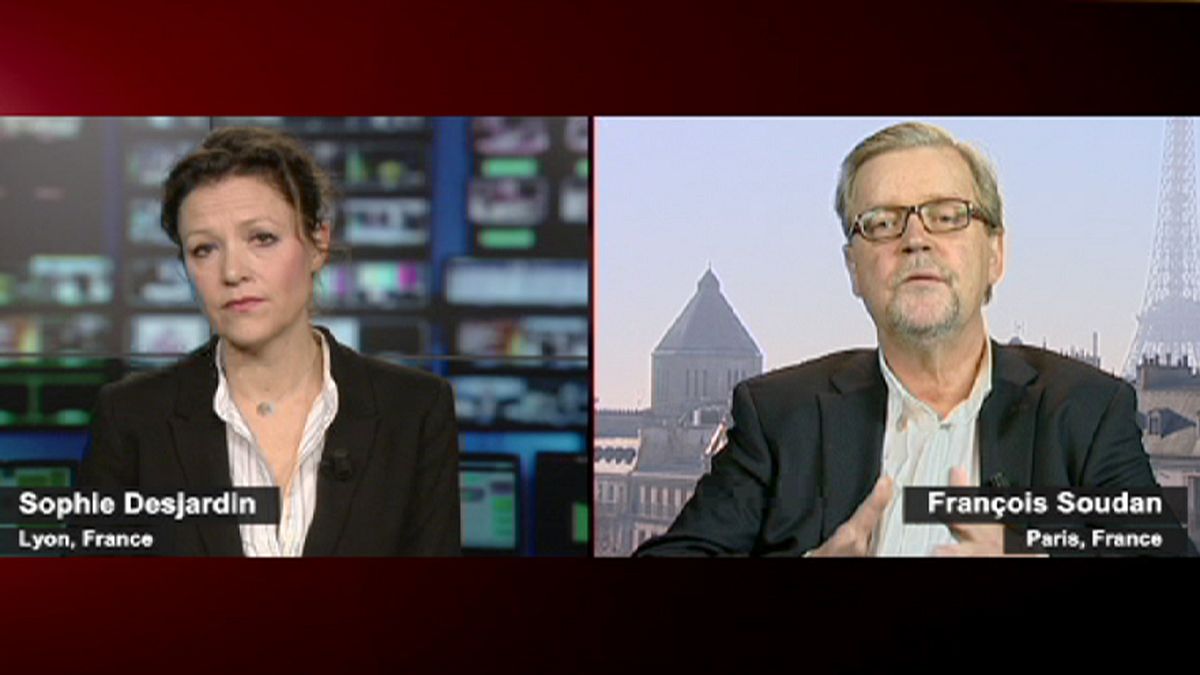The Central African Republic has been in turmoil since a March coup d’etat overthrew President Bozizé.
Following this coup, the country slipped to the edge of what some warn could be a “genocidal” confrontation between the majority Christians and the Seleka Muslims, who have now seized power.
It would be Rwanda all over again, said some.
The former French colony has staggered from crisis to crisis since independence in 1960, yet it is rich in uranium, diamonds, and gold.
Seleka militias, a diverse grouping of mostly Muslim factions including Chadian and Sudanese fighters, have put on CAR Army uniforms, but refused to obey an order to disband and disarm from their former leader, now interim President, Michel Djotodia.
After several civilian killings Christian militias formed to defend districts and villages, calling themselves ‘Anti-machete’ or, locally, ‘Anti-balaka’.
They’ve then attacked muslims, twisting the spiral of violence further.
Faced with an emergency, the UN Security Council authorised French troops to join the African Union to use force to protect civilians.
An arms embargo has been imposed, and there are calls for the UN to consider sending a peace mission.
France has sent a rapid response force of 1600 men to reinforce the 2500-strong MISCA African Union force. This will eventually number 6000 men. Britain is supplying logistical air support.
The UN Security Council resolution gives the French and MISCA troops a six-month mandate to make the country a safe place again. After that is another story, as this eternally volatile nation seeks to at least start climbing the ladder to prosperity.
This is France’s second military intervention in Africa since the beginning of the year, after Janurary saw Operation Serval in Mali.
What is behind this latest intervention? What are the real or supposed objectives?
To talk about this euronews’ French Editor Sophie Desjardin spoke to François Soudan, the editor-in- chief of Jeune Afrique, a leading panafrican newspaper based in Paris.
Sophie Desjardin:
“To understand the context and the situation of the country, is the fall of President Bozizé in March the real beginning of the descent into chaos or is it more ancient?”
François Soudan:
“The chaos in the CAR is more one of bad governance that goes back to the 1960’s, when the father of Centrafrican independance, Barthélémy Boganda, died in a mysterious plane crash, later blamed on the French secret services. This is this original sin, if you like, the origin of everything that followed.
After that we had a succession of administrations all marked by bad governance. I remind you that this is the 5th French intervention since independence, and each time, we have to go back to square one and start from the beginning.”
euronews:
“In what way is this operation different from the one in Mali?”
François Soudan:
“It’s different, first of all, in the way it is seen in France. We’ve heard talk about genocide. This is not completely the case, but the government had to use strong language to win over public opinion
The second difference is: who are the French fighting against? Who do they have to disarm? In Mali that was quite simple. It was Aqmi and the Mujao. Here it is the Seleka, and also the anti-Seleka. So France has to fight on two fronts. And then finally, and very importantly, the other difference is ‘what will happen tomorrow?’
In Mali it was simple, we had a political class that existed and we could prepare elections relatively quickly. In CAR there is nothing like this.”
euronews:
“France has also talked about a president that no longer controls the country and the necessity of a political transition. So the question is, is France going to save lives or oust the president? Is this a humanitarian or political mission?”
François Soudan:
“I’d say both. We need a humanitarian mission, but it will be very difficult and take a very long time to implement it, and we also need to have elections. But again there is no administration capable of organsing elections, so the UN and African Union will have to be involved. So let’s call it like it is, the country will have to be put under a sort of ‘tutorship’ from UN and African Union for 6 or 8 months. “
euronews:
“How much did the presence in the CAR of armed groups from neigbouring countries, like the LRA (Lord’s Resistance Army, led by) war criminal Joseph Kony, influence the French decision? “
François Soudan:
“The big fear indeed from France and also Cameroon, the Democratic Republic of Congo and Chad, who all border the country, is that the CAR could become a sort of grey zone, and that jihadists – we’re thinking of Boko Haram – could melt into it. That is the first point and that would be a destabilizing factor for the whole region.
France also has some economic interests at stake; there’s uranium, and Areva has investments, but the problem is this will need a very long and very costly commitment.”
euronews:
“The spectre of old-fashioned French neo-colonialism has been raised with two interventions in less than 12 months. Is France obliged to play policeman in its former colonies?”
François Soudan:
“You’re right to bring that up. There are a certain number of things about which France should be very careful. We saw yesterday how François Hollande flew into Bangui without asking for permission from the transitional government, and as far as I know the CAR is still a sovereign nation.
We could imagine the French army being dragged into the trap of being seen to defend just one community, the Christians. France must do its utmost to avoid traps like this, otherwise the mission’s objectives could disappear.”
